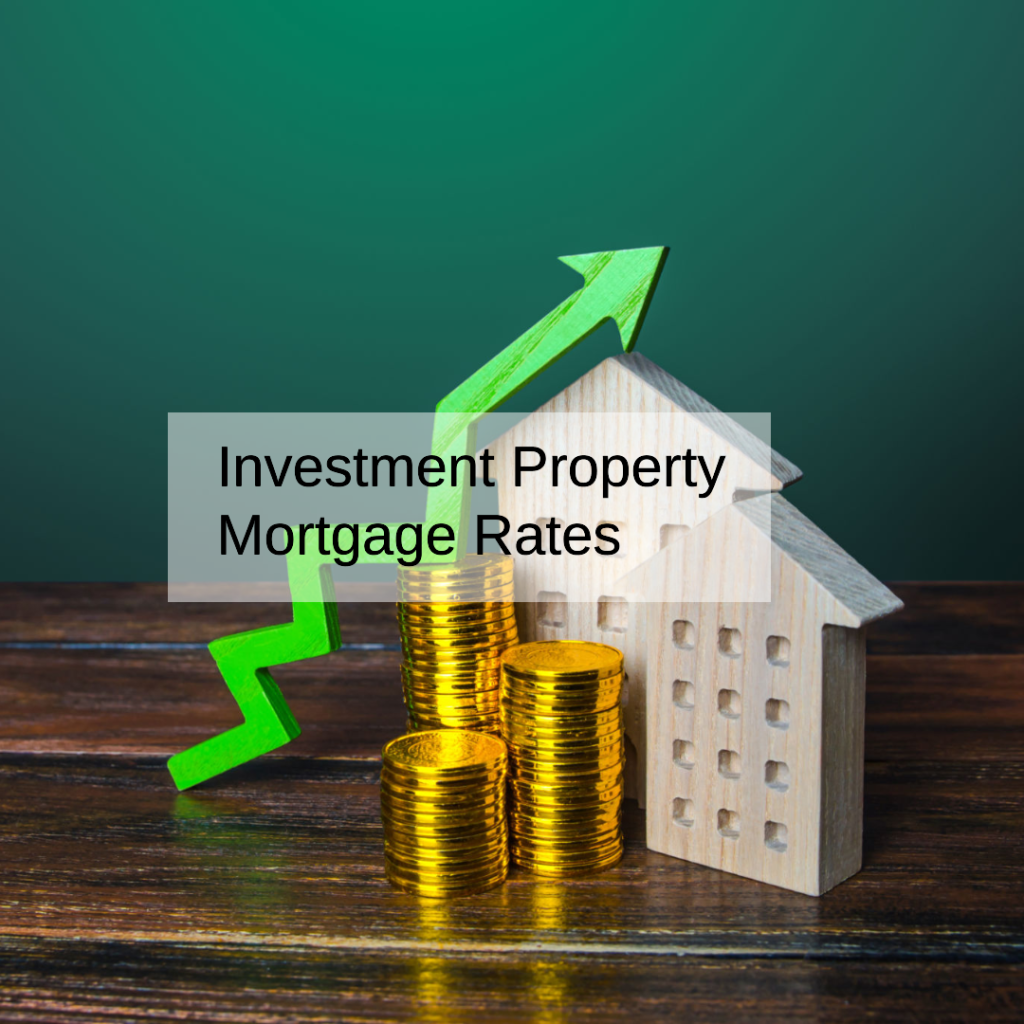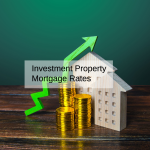Investing in real estate can be a lucrative venture, but understanding the nuances of investment property mortgage rates is crucial for success. In this guide, we'll explore what investment property mortgage rates are, how they differ from traditional mortgage rates, the types of investment property mortgage rates available, current rates, and tips for securing the best rates.
Investment property mortgage rates are the interest rates charged on loans used to purchase or refinance rental properties. These rates are typically higher than those for primary residences due to the higher risk associated with investment properties.
Understanding Investment Property Mortgage Rates
Investment property mortgage loan rates differ from traditional mortgage rates in several key ways. Traditional mortgage rates are based on the borrower's creditworthiness and the loan-to-value ratio, while investment property rates also consider the property's income potential and the borrower's experience as a landlord.
Factors that influence investment property mortgage rates include the property type, location, and market conditions. For example, rates for multi-family properties may be higher than rates for single-family homes, and rates in competitive markets may be higher than rates in less competitive markets.
How to Get the Best Mortgage Rate
Unlock insider tips and strategies to secure the best mortgage loan rate, from improving your credit score to shopping around and negotiating with lenders.
Types of Investment Property Mortgage Rates
There are several types of investment property mortgage rates, including fixed-rate mortgages, adjustable-rate mortgages (ARMs), and interest-only mortgages.
Fixed-rate mortgages offer a stable interest rate for the life of the loan, making them a popular choice for investors seeking predictability in their monthly payments. However, fixed-rate mortgages may have higher initial rates than ARMs or interest-only mortgages.
Adjustable-rate mortgages (ARMs) have interest rates that adjust periodically based on market conditions. While ARMs often have lower initial rates than fixed-rate mortgages, they can become more expensive if interest rates rise.
Interest-only mortgages allow borrowers to pay only the interest on the loan for a specified period, typically 5 to 10 years. After the interest-only period ends, borrowers must pay both principal and interest, which can result in higher monthly payments.
Compare Mortgage Lenders Side by Side
Learn how to effectively compare mortgage loan lenders, weighing factors such as rates, fees, customer service, and reputation to find your ideal partner.
Current Investment Property Mortgage Rates
It's important for investors to shop around and compare rates from multiple lenders to ensure they're getting the best deal. Working with a mortgage broker can also help investors find competitive rates and navigate the loan application process.
Factors That Determine Your Mortgage Rate
Gain insights into the various factors that influence your mortgage rate, including creditworthiness, loan amount, down payment, and market conditions.
Tips for Getting the Best Investment Property Mortgage Rates
Improving your credit score can help you qualify for lower interest rates. Paying down debt and making on-time payments can boost your credit score over time.
Saving for a larger down payment can also help you secure a lower interest rate. Lenders typically require a higher down payment for investment properties than for primary residences, so having a substantial down payment can help you qualify for better rates.
Shopping around for the best rates is essential. Comparing rates from multiple lenders can help you find the most competitive offer. Consider working with a mortgages loan broker who can help you navigate the loan application process and find the best rates for your investment property.
Some of Best Mortgage Lenders in the USA
- Quicken Loans - Known for their excellent customer service and fast loan processing times.
- Wells Fargo - Offers a wide range of mortgage products and has a strong presence nationwide.
- Chase Bank - Provides competitive rates and a variety of loan options to suit different needs.
- Bank of America - Offers competitive rates and has a strong online presence for easy access to mortgage information.
- US Bank - Known for their personalized service and flexible loan options.
- Rocket Mortgage - Offers a completely online mortgage application process for convenience.
- Veterans United Home Loans - Specializes in VA loans and provides exceptional service to veterans and active-duty service members.
- CitiMortgage - Offers competitive rates and a variety of loan options for homebuyers.
- SunTrust - Known for their flexible loan terms and excellent customer service.
- Freedom Mortgage - Offers a variety of loan options and specializes in helping first-time homebuyers.
- PennyMac - Known for their competitive rates and efficient loan processing.
- Guild Mortgage - Offers personalized service and a wide range of loan options for homebuyers.
How to Refinance Your Current Mortgage
Navigate the refinancing process with confidence, from assessing your financial situation to choosing the right refinance option and lender.
Investment property mortgage loans rates play a significant role in the profitability of a real estate investment. By understanding how these rates are determined and following the tips outlined in this guide, investors can secure the best rates for their investment properties and maximize their returns.
FAQs About Investment Property Mortgage Rates
Q: What are investment property mortgage rates?
A: Investment property mortgage rates are the interest rates charged on loans used to purchase or refinance rental properties. These rates are typically higher than those for primary residences due to the higher risk associated with investment properties.
Q: How do investment property mortgage rates differ from traditional mortgage rates?
A: Investment property mortgage rates consider factors such as the property's income potential and the borrower's experience as a landlord, in addition to creditworthiness and loan-to-value ratio, which are considered for traditional mortgage rates.
Q: What types of investment property mortgage rates are available?
A: There are several types of investment property mortgage rates, including fixed-rate mortgages, adjustable-rate mortgages (ARMs), and interest-only mortgages. Each type has its own benefits and considerations.
Q: What is a fixed-rate mortgage for investment properties?
A: A fixed-rate mortgage offers a stable interest rate for the life of the loan, providing predictability in monthly payments. However, initial rates may be higher compared to ARMs or interest-only mortgages.
Q: How do adjustable-rate mortgages (ARMs) work for investment properties?
A: ARMs have interest rates that adjust periodically based on market conditions. While they often have lower initial rates than fixed-rate mortgages, they can become more expensive if interest rates rise.
Q: What are interest-only mortgages for investment properties?
A: Interest-only mortgages allow borrowers to pay only the interest on the loan for a specified period, typically 5 to 10 years. After the interest-only period ends, borrowers must pay both principal and interest.
Q: How can I get the best investment property mortgage rates?
A: To secure the best investment property mortgage rates, consider improving your credit score, saving for a larger down payment, shopping around for the best rates, and working with a mortgage broker who can help you find competitive offers.
Q: How can I qualify for lower investment property mortgage rates?
A: Qualifying for lower investment property mortgage rates may involve improving your credit score, saving for a larger down payment, and demonstrating a strong financial profile to lenders.
Q: Why are investment property mortgage rates higher than traditional mortgage rates?
A: Investment property mortgage rates are higher than traditional mortgage rates due to the higher risk associated with investment properties. Lenders typically charge higher rates to compensate for this increased risk.
Q: Can I refinance my investment property mortgage to get a lower rate?
A: Yes, refinancing your investment property mortgage can be a way to secure a lower interest rate. However, the decision to refinance should be based on your financial goals and the overall cost savings of refinancing.














